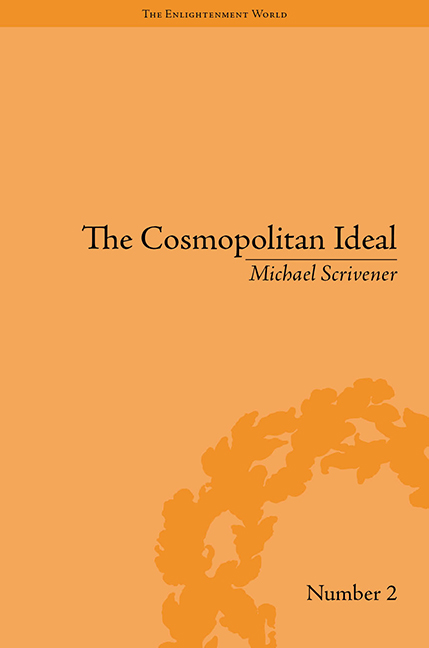Introduction
Summary
A familiar narrative about the period following the American and French Revolutions is that the cosmopolitan Enlightenment gave way to a romantic nationalism that was ascendant until World War I. That nationalism and conservative romanticism gained strength after 1789 can hardly be disputed, but the cosmopolitan ideal exerted influence and developed creatively during the same period. After the end of the Cold War in 1988–9, the cosmopolitan political ideas of the Enlightenment, especially Kant's, attracted considerable interest. Other features of the Enlightenment – tolerance, secularism, internationalism and commerce des lumières (exchange of enlightened ideas) – also acquired appeal in light of recent developments like ethnic cleansing, xenophobic hatred and politicized religious fundamentalism. One could do worse than studying Enlightenment cosmopolitanism in search of a useable past for intellectual models of multiculturalism in the global village.
That cosmopolitan signifies both world citizen and worldliness suggests a dialectical relationship between political arrangements and cultural-psychological dispositions. Those in intolerant, fearful cultures are unlikely to support political initiatives for international cooperation and trans-national dialogue, whereas those who travel outside their own communities and learn about experiences different from their own do not find political cosmopolitanism immediately threatening.
This study treats cosmopolitanism in three different spheres: the political, the philosophical and the literary. Although there are versions of political cosmopolitanism other than and even opposed to that of Kant and Habermas, the book concentrates almost exclusively on the ideas for ‘perpetual peace’ first put forward by the philosopher from Königsberg and developed further by the most important thinker of the Frankfurt School's second generation. Even if one finds Habermas's cosmopolitan ideas flawed in whole or in part, one encounters in his writing a fully worked-out argument that is richly elaborated and rigorously developed. He not only illustrates in great detail the limitations and achievements of the Kantian legacy but opens his revision of Kant to a critical dialogue with other traditions.
- Type
- Chapter
- Information
- Publisher: Pickering & ChattoFirst published in: 2014



